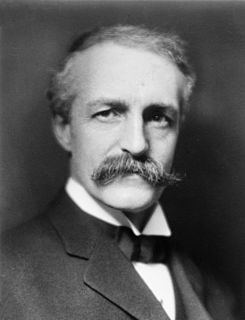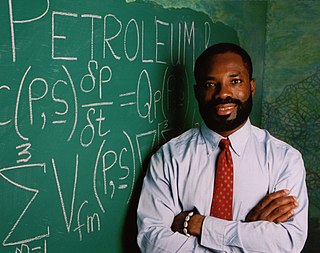A Quote by Ken Robinson
Human resources are like natural resources; they're often buried deep You have to go looking for them; they're not just lying around on the surface You have to create the circumstances where they show themselves.
Related Quotes
Without natural resources life itself is impossible. From birth to death, natural resources, transformed for human use, feed, clothe, shelter, and transport us. Upon them we depend for every material necessity, comfort, convenience, and protection in our lives. Without abundant resources prosperity is out of reach.
When you think of all the conflicts we have - whether those conflicts are local, whether they are regional or global - these conflicts are often over the management, the distribution of resources. If these resources are very valuable, if these resources are scarce, if these resources are degraded, there is going to be competition.
Hackman's paradox: Groups have natural advantages: they have more resources than individuals; greater diversity of resources; more flexibility in deploying the resources; many opportunities for collective learning; and, the potential for synergy. Yet studies show that their actual performance often is subpar relative to "nominal" groups (i.e. individuals given the same task but their results are pooled.) The two most common reasons: groups are assigned work that is better done by individuals or are structured in ways that cap their full potential.
In Texas, years ago, almost all of the oil came from surface operations. Then someone got the idea that there were greater sources of supply deeper down. A well was drilled five thousand feet deep. The result? A gusher. Too many of us operate on the surface. We never go deep enough to find supernatural resources. The result is, we never operate at our best. More time and investment is involved to go deep but a gusher will pay off.
Early in my career I discovered that there was something really special about photographing at night that places your mind on the surface of the planet. You’re no longer just a human being walking around in the regular world. You’re a human animal striding around on the surface of the planet that’s out in the middle of the galaxy. We as a culture, we’re forgetting that we are actually natural organisms and that we have this very deep connection and contact with nature. You can’t divorce civilization from nature. We totally depend on it.
Our worst instincts as human beings have to do with our carelessness with natural resources, and when the body itself becomes just one more of those resources, how will we treat it? Will we treat it with such indifference and with such depersonalization that it becomes more like a very fancy car than a repository of the self?
Our supplies of natural resources are not finite in any economic sense. Nor does past experience give reason to expect natural resources to become more scarce. Rather, if history is any guide, natural resources will progressively become less costly, hence less scarce, and will constitute a smaller proportion of our expenses in future years.



































